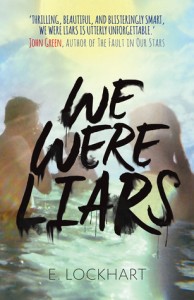 Title: The American Lover (Goodreads)
Title: The American Lover (Goodreads)
Author: Rose Tremain
Published: Chatto & Windus, 2014
Pages: 240
Genres: Short Stories
My Copy: Library Book
Buy: Amazon, Book Depository, Kindle (or visit your local Indie bookstore)
Rose Tremain is a name I have heard so often but never had the chance to read on of her books; in fact her name is familiar but I couldn’t tell you anything about her books. She has published thirteen novels including The Road Home (which won the Orange Prize in 2008) and Music and Silence (winner of the Whitbread award in 1999). She taught creative writing at the University of East Anglia until she was appointed chancellor in 2013 and she is married to Romantic biographer Richard Holmes (not that her marriage affects her writing, just an interesting fact). She has also written five collections of short stories including her latest The American Lover.
While I sometimes struggle to read and review short story collections, I still wish to talk about them (just so I have a record). I picked up The American Lover because it mentioned a story about a famous Russian writer’s (story was inspired by Tolstoy’s life) final days living in a stationmaster’s cottage outside of Moscow. As most people know, I am a fan of Russian literature and books about Russia itself. When I looked at the author’s name, I was excited even more, it was a chance to finally dip into the writing style of Rose Tremain.
Without going into all the stories within the book, Tremain goes into some very interesting topics from transgressive love, sex, reflections of life and even a very unusual story about Daphne du Maurier. What I found in this collection is that Rose Tremain has a great ability to create characters and express emotions. There are some brilliantly dark and sometimes comical moments the she masterfully crafted into her stories. She has produced a collection centred around so many different emotions and skilfully managed to fit them into such short stories.
I really love the characters and emotions expressed in these stories and really makes me want to experience Rose Tremain’s style in long form. However I am not sure which novel to start with and would love some recommendations. The American Lover was a brilliant way to dip into Tremain’s writing and I am so glad to have finally had a chance to do so. If her writing abilities work just as well in her novels, she may have found a new fan.

 Title: We Were Liars (
Title: We Were Liars ( Title: The Castle of Otranto (
Title: The Castle of Otranto (
 One of my favourite bookish podcasts is The Readers; if you haven’t heard it before go and subscribe, it offers random book-based banter which has been both enjoyable to listen to and offers some interesting ideas for future blog posts. This post is inspired by the latest episode about the “
One of my favourite bookish podcasts is The Readers; if you haven’t heard it before go and subscribe, it offers random book-based banter which has been both enjoyable to listen to and offers some interesting ideas for future blog posts. This post is inspired by the latest episode about the “